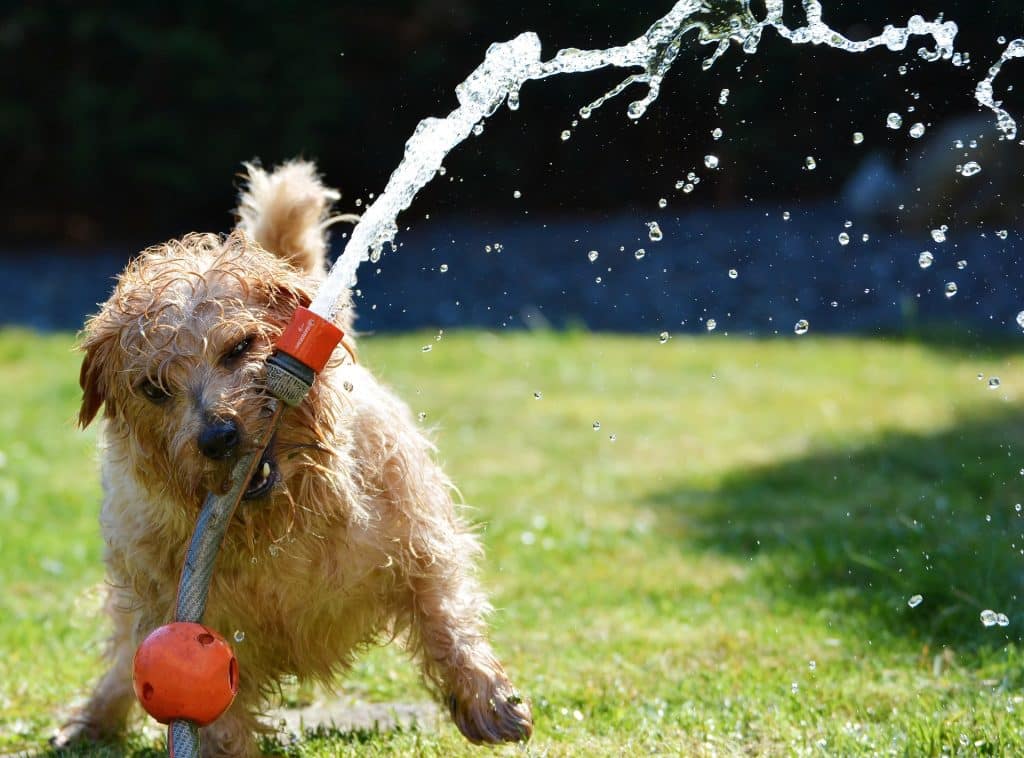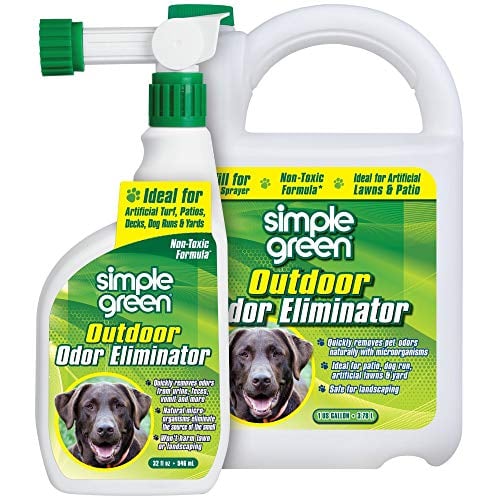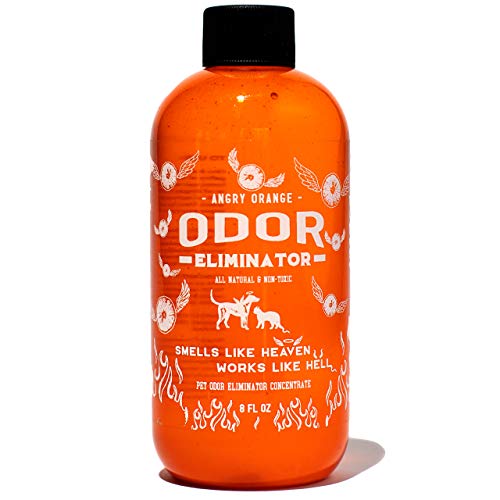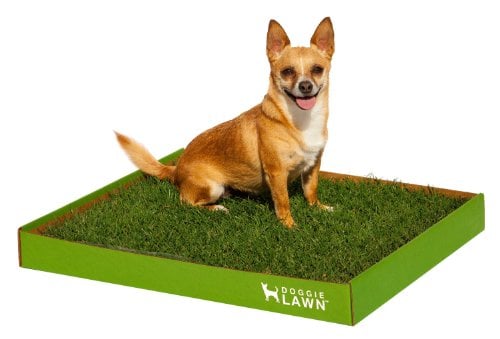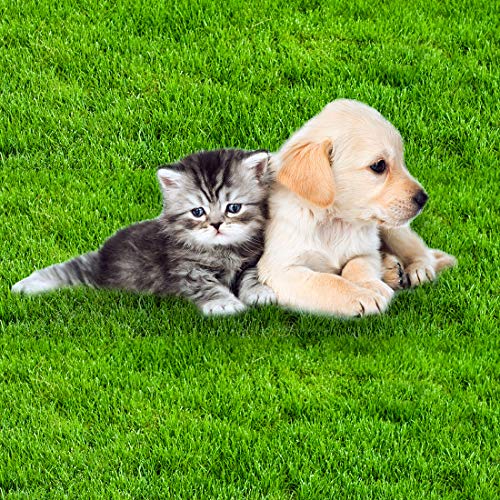- This post contains affiliate links. Read more here.
It’s summertime, and you’re ready to spend as much time outdoors as possible. You look forward to barbecuing, having fun in the pool, or just relaxing on your patio. But then, you realize that there’s an overpowering smell of pet urine that hits you as soon as you walk out the back door. That’ll certainly put a damper on your fun.
So what can you do?
Your pets need somewhere to do their business, but you also want to enjoy your yard. The good news is there are many options that you can try in your yard to reduce and remove your pet’s urine smells!
Just Use Water
Yes, really. Water is the best, and easiest, way to reduce the smell of urine in your yard. Water works by simply diluting the urine and washing it away. Yes, the urine still gets into your soil, but with enough water, it’s not as concentrated and the smell won’t be there.
Now, this may not be the best option for everyone: if you don’t water your lawn frequently, or if you have multiple pets (especially big dogs) that use the lawn for their business, just using water may not remove all the smells efficiently.
Using water to remove urine smells can also work on concrete. However, this requires you to see and then immediately clean any urine on the concrete. A quick wash away with the hose should help dilute the urine and helps to avoid it soaking into the porous concrete.
A Note About Concrete: Concrete is porous, so it’s important to clean up pet urine as soon as possible. If you realize that the urine smell in your yard is coming from dry concrete, it means that the urine has soaked down beneath the surface. You’ll need something a bit more heavy duty to remove the urine smell.
Enzymatic Cleaning Products
To clean and remove strong urine smells from your home and yard, an enzymatic cleaner is absolutely necessary. These cleaners work by using “good” bacteria to break down the bacteria in urine that causes smells and stains. The good news is that these cleaners can also be used out in your yard!
Here are just a few options that can help you:
SIMPLE GREEN Outdoor Odor Eliminator
This product works by hooking up the bottle to your garden hose. Its ease of use means you can spray your lawn and patio quickly. It’s safe to use on your patio, grass, and even artificial turf. Frequency of use will depend on how many pets use your yard as their bathroom.
Angry Orange Pet Odor Eliminator
This product comes in a concentrated form, so you’ll have to mix the proportions into a spray bottle. This would work best on small areas (such as patches of concrete where urine has absorbed).
Train Your Dog to Use a Dog Lawn
To avoid urine smells on your grass and concrete, you can also train your dog to go on a more contained “dog lawn.” There are many products on the market designed to give your dog a separate place to go, and because they can be cleaned, urine smells can be significantly reduced! Though many people use these products indoors, they can be a great way to avoid urine smells in your backyard.
Doggie Lawn
This product provides your dog with a small, real lawn. It’s hydroponically grown which means it helps to reduce the smell of urine. It’s designed to last for a few weeks before being replaced for freshness. Because it’s real grass, it can be disposed of in your green waste or compost bin.
STARROAD-TIM Artificial Grass
Artificial turf is another option for your pets. Products such as this turf give you a place to contain urine that’s also washable. A frequent rinse with soap and water makes this turf reusable.
Other Remedies
The internet is full of other options for you to try. You may find information about using baking soda, vinegar, or even sprinkling lime around outdoors, but there’s conflicting information regarding the effectiveness of these approaches. Be sure to do your research before trying additional methods to ensure that you’re taking your pet’s safety in mind as well as the potential for damage to your lawn or trees.
Once you find a solution that works for you and your family, you can enjoy your backyard without worrying about the intense smells of pet urine.
